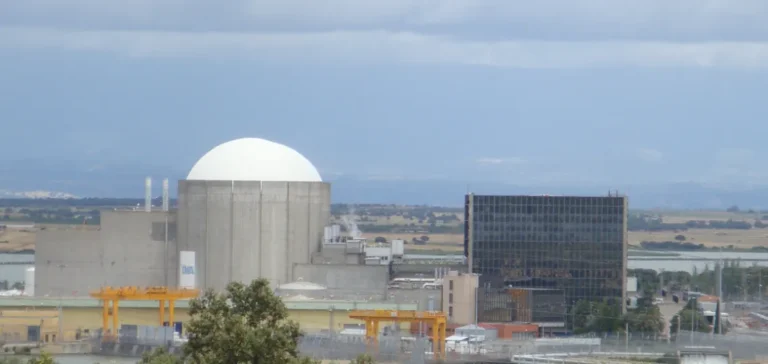The Spanish government has confirmed receiving a joint request from Endesa, Iberdrola and Naturgy to extend operations at the Almaraz nuclear power plant. Located in the Extremadura region, Almaraz is currently the most powerful nuclear facility in the country, accounting for 7% of national electricity production. Its closure was scheduled for 2028, following a 2019 agreement.
The letter sent to the Ministry for the Ecological Transition by the three plant owners expressed their “availability” to reconsider the shutdown timeline. This move comes after a major power outage on April 28 raised concerns about Spain’s ability to maintain electricity supply in the medium term.
Context of pressure on energy supply
Industry voices in Spain have been urging a revision of the planned nuclear phase-out, which is currently set for 2035 by the coalition government led by Prime Minister Pedro Sánchez. Nuclear still represents 19% of the country’s energy mix, down from 38% in the 1980s. The number of operating plants has fallen from eight to five, with a total of seven reactors still in service.
The Ministry for the Ecological Transition reiterated that any decision regarding a potential extension must ensure citizen safety and must not impose additional costs on consumers. None of the three companies involved have publicly commented on their initiative, though internal sources at Iberdrola earlier this week confirmed that a coordinated request was being prepared.
Operators seek to delay progressive nuclear exit
Recent statements from Naturgy had already indicated a desire to extend the life of Almaraz until 2030, two years beyond the current schedule. The primary argument from the operators focuses on ensuring grid stability, as renewable energy sources—despite ongoing growth—have not yet fully replaced baseload capacity.
Spain continues to invest heavily in solar and wind infrastructure, while officially maintaining its goal of a complete nuclear phase-out by 2035. In this context, the Almaraz request could reignite technical and political discussions around the pace of this transition, based on current electricity production and national energy needs.






















